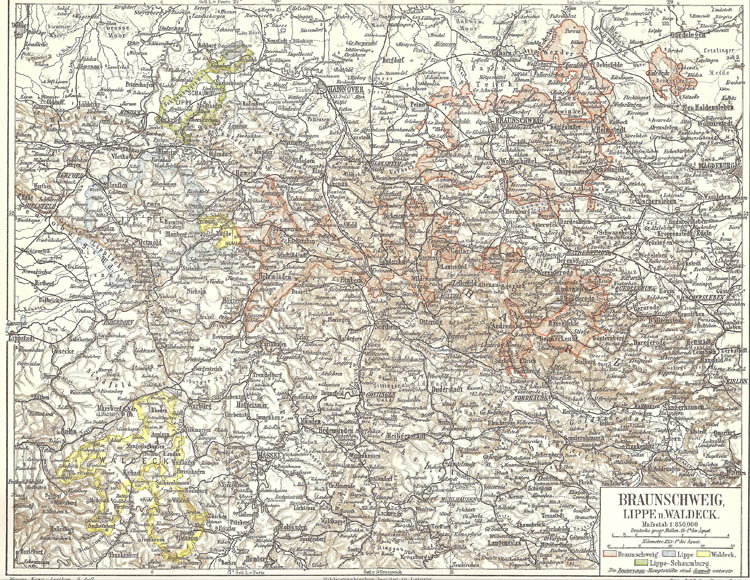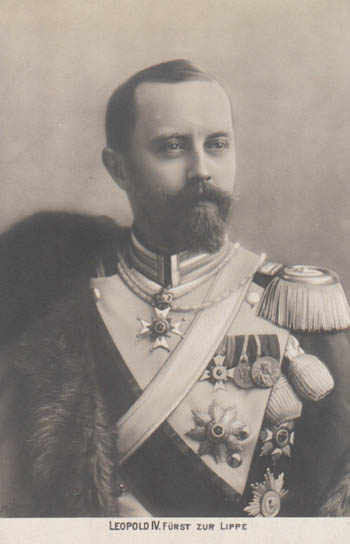Lippe




(1813-1871)
The Principality of Lippe, a German state since the twelfth century, was a member state of the Germanic Confederation from 1815 to 1866. After the Prussian-Austrian War, it became a member state of the North German Confederation in 1867. It became a member state of the German Empire in 1871. More than 95 percent of the population was Protestant. The constitution called for a parliament of twenty-one members, known as the Landtag. The franchise for electoral purposes was similar to the Prussian three-tier system except for that the vote was secret. The population was divided into three classes based on taxation, each of which sent seven members to the Landtag. Lippe had one vote in the German Reichstag, and also one vote in the Bundesrat.
There were arguments over the succession in this house. Woldemar, Prince of Lippe died in 1895. He was succeeded by Alexander, the last of the senior line (Detmold), who was hopelessly insane, single, and had been declared incapable of ruling. This was followed by a struggle between regents, Adolf of Schaumburg-Lippe and Ernst of Lippe-Biesterfeld fought over the succession. The Bundesrat requested that the Chancellor of the Empire refer the question of the succession to a special court of arbitration. This court was presided over by King Albert of Saxony who determined in 1897 that Count Ernst of Lippe-Biesterfeld was the rightful successor and was sole regent of the principality. The Schaumburg-Lippes launched a counter-offensive by challenging Count Ernst’s marriage, attempting to declare it morganatic. Count-Regent Ernst died in 1904 and his eldest son Leopold became regent. The Kaiser particularly objected to Leopold as his grandmother was an American. The Kaiser refused to recognize him as regent and once again, the issue of who was the legitimate regent raged. It was so contemptuous that the Kaiser ordered the officers of the Prussian regiments stationed in Lippe not to provide the customary salute and bowing to any of the Countesses of Lippe. The Biesterfeld line assumed sovereign status on the extinction of the Detmold line in 1905, when the insane Prince Alexander died and the Court of Justice declared that the descendants of Count-Regent Ernst were entitled to the crown. Leopold, who had a morganatic marriage, was named the regent. Count Leopold remained as regent, and the court of arbitration declared the marriage in question to be equal and Leopold (b. 1871) thus became Prince of Lippe.
Consuls were maintained for trade with Prussia, Belgium, Brazil, France, Great Britain, Italy, Mexico, Austria-Hungary, Paraguay, Portugal, Rumania, Russia, Switzerland, Serbia, and Turkey.
The capital was Detmold. There were 154,000 inhabitants in 1914.
